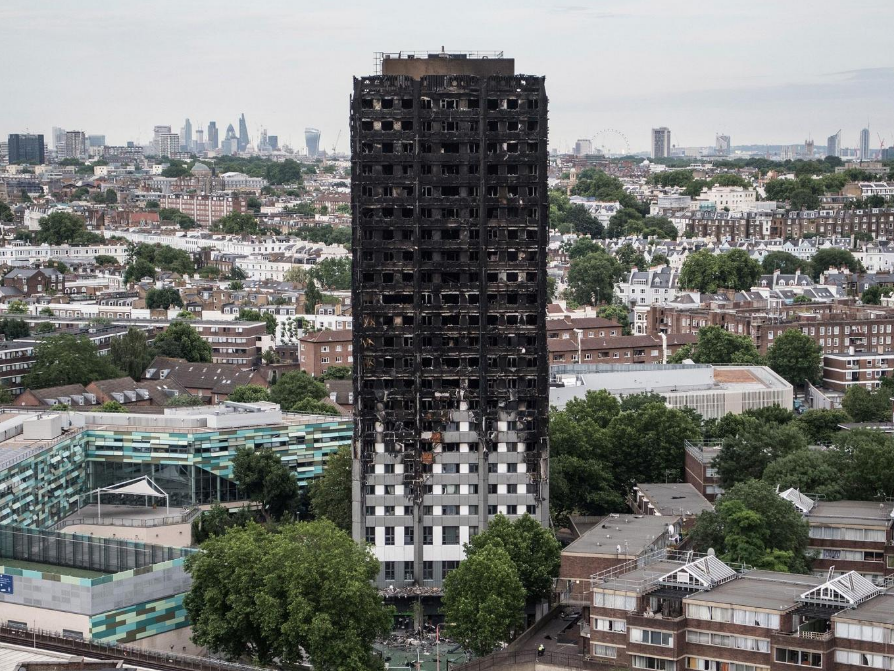Millennials spend a quarter of income on housing. How do we fix what Resolution calls Britain's housing catastrophe?
Generation Rent needs more affordable and secure rental accomodation to make it easier to save to buy, and to make life better for those that can't

A 50 year drain on living standards, is the effect of what the Resolution Foundation describes as Britain’s “housing catastrophe”.
If you consider its figures you’ll see why “crisis”, an adjective stripped of much of its power by over use, no longer cuts the mustard.
The so called ‘Silent Generation’ that grew up prior to the Second World War (1926-1945) spent just 7 per cent of its income on housing at the age of 30.
The figure more than doubled for the Baby Boomers (1946-1965), who spent 17 per cent of their income at the same age.
As for the Millennials (1981-2000), they currently spend almost a quarter of what they bring in (23 per cent).
So often characterised as whingers by the Boomers, a majority of whom stuffed their gradnchildren's future by voting for Brexit, these figures demonstrate that they have just cause for complaint.
Boomers may have paid more than their parents, but they also benefitted handsomely from improvements to the security and quality of housing, and the rise in the price of the homes they own.
Millennials? If, when, they raise sufficient funds to cover the cost of a deposit to buy a house, their purchase will likely be smaller, and come with a longer commute. Since 1996 the average floor space has decreased by 4 per cent for under 45s. They will have spent 64 hours a year getting to and from work more than those that preceded them. Often on cramped public transport. Now you now why their headphones are glued to their ears.
While they attempt to save for deposits in private rented accommodation, they face the insecurity of eviction at two months notice, which doesn’t give them much time to find an alternative. And having to move at the drop of a hat can be very expensive.
This is obviously a problem that will not be fixed overnight. It certainly won't be addressed by listening to developers, who would like the planning process to be made easier for them to build what are often the wrong sort of homes.
The Grenfell fire highlighted the problem in London (where affordability is at its lowest): There are far too many empty luxury properties, put up because they provide the best margins for the people that built them. There are far too few affordible homes.
But London is not alone.
Advocates for private landlords, meanwhile, urge that the market has to “work for them”. If it doesn’t there will be less private landlords, the poor lambs, and then where would we be?
Another striking feature of the current housing market is that it has become gummed up.
Prices have started to drift down, but they will be ultimately find a floor as a result of the lack of available supply. Volumes, however, couldn't get very much lower. People have stopped moving.
These issues could be addressed by the state getting more involved, and through it taking on more responsibility, which is something it surely ought to do.
What it needs to address is the fact that Britain is desperately short of secure, affordable tenancies; places that can be let to people for the medium to long term. If these were more available their residents might be able to save for a deposit, supplying more first time buyers to a market that needs them. Those unable to do that could, meanwhile, enjoy some much needed security.
Whether these are provided through housing associations, trusts of some description, councils, or a mix (which would probably be best) it doesn't really matter. The key point is their provision by organisations whose chief raison d’être is to house people, as opposed to making money.
Funding? Allow them to borrow via bonds secured against future rental revenues. Oh, and give them priority when it comes to planning. Which might upset some people. But it’s a crisis. Even a catastrophe. If it means people waiting a little longer to get the go-head for a loft, or if private developers face delays before they can build their luxury homes? So be it.
The legislative priority has for years been to make it easier for people to buy, through initiatives such as help to buy, or shared ownership, for example. But you’d help more people to buy, more people full stop, by making it cheaper (and more secure) to rent first.
In the meantime, while we’re debating the issue, another measure that needs to be taken as a matter of urgency is to cease the subsidised sale of council and other public housing to the minority of tenants that can get mortgages, which only serves to reduce the available stock.
Reducing the stock of social housing will only turn the current catastrophe into… I don’t know. A housing apocalypse sounds silly. So, an even worse catastrophe.
Join our commenting forum
Join thought-provoking conversations, follow other Independent readers and see their replies
Comments
Bookmark popover
Removed from bookmarks